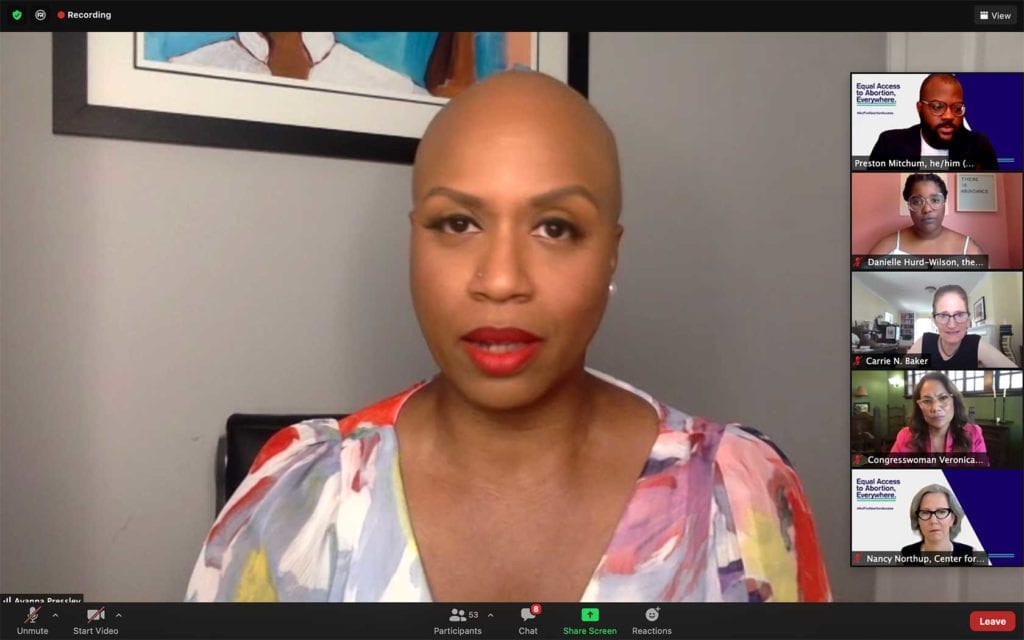
Congresswoman Ayanna Pressley and five other legislators announced the Women’s Health Protection Act on Tuesday, which guarantees a woman’s right to an abortion and the right of an abortion provider to give those services.
Pressley is the chair of Congress’ Pro-Choice Caucus’ Abortion Rights and Access Task Force and is helping to reintroduce the bill as part of her fight for reproductive justice. Last session, the previous WHPA bill had 260 cosponsors.
Since the U.S. Supreme Court decided in May to hear a case that challenges Roe v. Wade — the 1973 ruling that protects a woman’s right to an abortion — the legislators made sure the bill protects that right even if Roe v. Wade is overturned.
“What anti-choice legislators have made clear is that they will stop at nothing to ban abortion care,” Pressley said.
“It is simply no longer enough to say that you are pro-choice. We have to proactively legislate racial and reproductive justice, and meaningfully advance policies that affirm that abortion care is health care,” she continued.
Abortions are legal in Massachusetts, though there are laws on what kinds of medical providers can and can’t perform them. The Massachusetts Supreme Judicial Court has upheld this right twice, by deeming requirements for life endangerment and consent from two parents unconstitutional.
However, the right stops at 24 weeks of fetal development. After that, abortions are only allowed if it is necessary to preserve the pregnant person’s life. There is also a 24-hour waiting period after reading through a form that NARAL Pro-Choice America calls “biased information” about the fetal development process.
Across the country, if a pregnant person has access to abortion services, she may have to have two parents sign off, be required to view an ultrasound of the fetus, and other barriers, some of which specifically target low-income and young women.
WHPA would remove several restrictions nationwide, eliminating mandatory waiting periods and ultrasounds as well as “biased” counseling that tries to convince women not to get abortions.
Current cosponsors include legislators from across the country, including Senator Richard Blumenthal of Connecticut.
Representative Judy Chu, another cosponsor, said that states have introduced 500 laws aimed at restricting abortions since 2011.
“In 2019 and 2020, lawmakers in seven states have passed bans on abortion at six to eight weeks of pregnancy, before many people even know they’re pregnant. In Alabama, lawmakers tried to ban abortion completely,” Chu said.
Pressley and Chu said these laws also harm Black women but rarely wound the privilege of white women.
“We have the opportunity and the responsibility to speak out against and actively dismantle racist and discriminatory policies,” Pressley said.
Chu added, “It’s a sad fact that in this country if you are white, rich and well-connected, abortion will always be available to you.”
Blumenthal reiterated that federal law trumps state law, so Massachusetts’ waiting periods and laws on which providers can perform abortions would all come into question if WHPA is passed.






